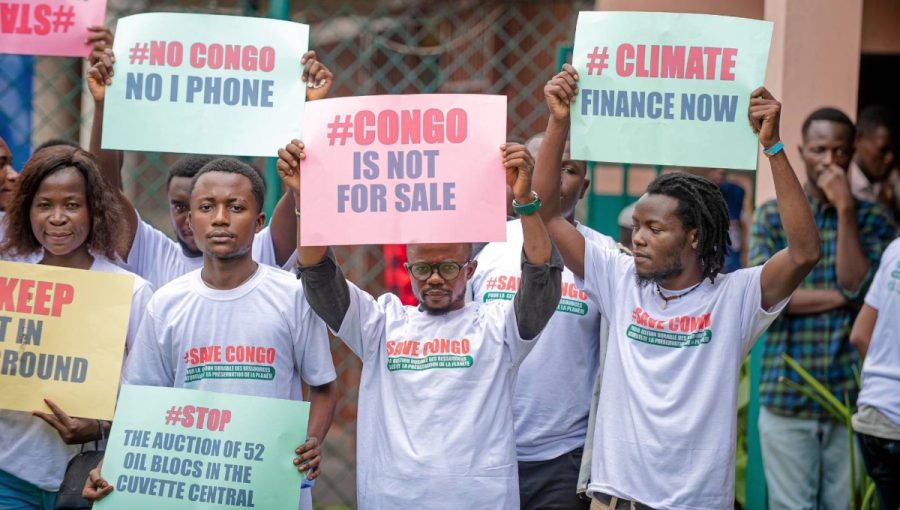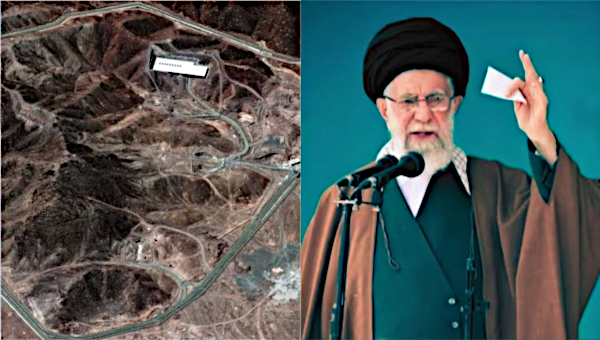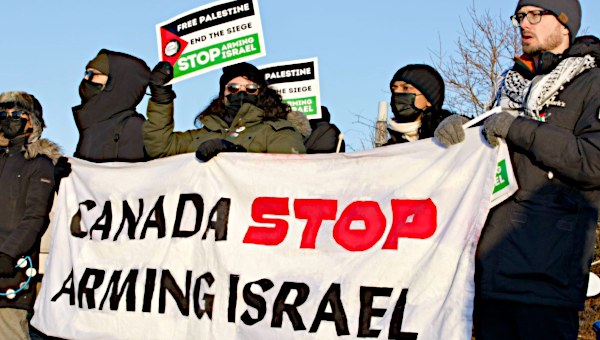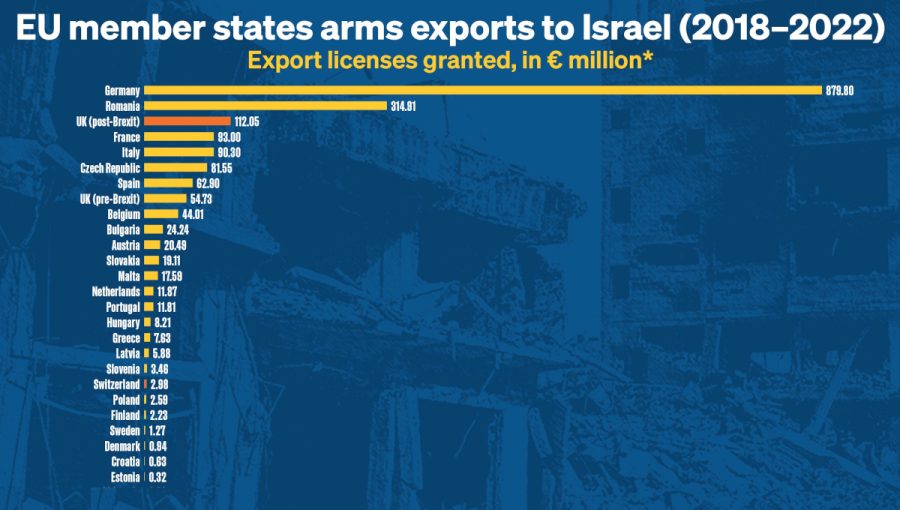Lebanon in a State of Siege
The military conflicts in Gaza and Lebanon have the whole world on edge. The military assaults by Israel have been out of massive disproportion to the soldiers kidnapped, and brought wanton destruction of civilian lives and infrastructure. The attacks have everything to do with the wider American and Israeli agendas for remaking the region in their own interests. The Bullet here prints an important interview just completed with a left activist from inside Lebanon on his reading of the political situation, a response to the killing of Canadian civilians today in Lebanon from Israeli missiles, and the call-out for emergency meetings of peace activists.
In this interview from Beirut, Saseen Kawzally (SK) describes the Israeli attacks on Lebanon, the background to the crisis, and its possible trajectories. Saseen is a left activist in Lebanon and has worked with Beirut Indymedia in the past. Jerome Klassen (JK) has spent time in Lebanon, is currently completing his Phd in Toronto, and is a member of CUPE. This interview occurred by phone over the past few days.
JK: Israel has imposed a siege on Lebanon and is bombing the country from the air and the sea. Can you describe the situation?
SK: Israel has bombed and shelled the country for four days. It has destroyed every road and bridge from the south of the country to Beirut. It has bombed the international road between Damascus and Beirut, as well as the airport and vital civilian infrastructures. Neighborhoods and houses in Beirut and in the South have been hit hard. A total siege has been imposed on the airports and seaports, both of which have been bombed. More than 100 civilians have been killed, and the massacres are forcing an evacuation of people from the South and from the suburbs of Beirut. Israel is also bombing buses and cars of people as they try to find safe shelter. Israel has said that ‘no place is safe’ in Lebanon, and they have attacked without regard for life, safety, or proportionality. They have once again brought disaster to Lebanon.
JK: Politicians and media in North America say that Israel is an innocent player in this conflict, and that Hezbollah’s initial operation was unprovoked. Can you provide a different context to the conflict?
SK: The real background is the ongoing aggression inflicted upon Lebanon by Israel since the Liberation in 2000. Israel still holds Lebanese prisoners. It still occupies the Sheeba farms in South Lebanon. On a weekly basis, it invades Lebanese airspace and coastal waters, and it regularly makes incursions over the Blue Line. It also has committed numerous assassinations in Lebanon in recent years. And it continually threatens the Lebanese government, for example, by breaking the sound barrier over Parliament when the government and cabinet are in session. Furthermore, Lebanese villages and farmers in the South are shelled on a regular basis, resulting in death and destruction. So, to speak of Israeli innocence is to hide the reality of non-stop aggression and war against Lebanon. These issues provide the real context to the recent conflict. Indeed, for over one year, Hezbollah has said that it would capture Israeli soldiers if the Lebanese prisoners were not returned. This was the first goal of the operation, as outlined by Hezbollah leader Nasrallah in the aftermath.
JK: And the Israeli response?
SK: Israel’s reaction by-passed the fundamental issues and took the conflict to a completely different and unjustifiable level. Even though Israel has agreed to prisoner swaps in the past, it is now determined to destroy Hezbollah, both militarily and politically. To do this, it is trying to explode the contradictions inside the Lebanese government in order to force the implementation of United Nations Security Council (UNSC) Resolution 1559, which calls for Hezbollah to disarm without forcing Israel to cease its war of aggression and occupation.
Since the Cedar Revolution of 2005, a crack has emerged in the Lebanese government. On the one hand, Hezbollah has joined the cabinet based on the government’s official recognition that Israel is an enemy that continues to occupy Lebanese territory and hold Lebanese prisoners. So, the initial operation needs to be viewed in light of the official government position. On the other hand, there are factions inside the government that oppose the resistance and that support the American agenda for Lebanon and the Middle East, including Resolution 1559. Israel is hoping that the mass bombing will break the cracks inside the cabinet and isolate Hezbollah from pro-U.S. sections of the government, leading to a disarming of the resistance. In other words, it is trying to aggravate the contradictions internal to Lebanese politics, and to fortify the relations between the U.S. and certain parts of the government, including Prime Minister Siniora. On the military side, Israel is trying to punish the nation until it turns against Hezbollah.
However, the Israeli strategy cannot work. It will not win over Lebanese public opinion through bombing and destruction. In fact, the opposite will occur. As more bombs are dropped, more support is likely to flow to Hezbollah, especially if Hezbollah continues to run efficient military operations. The collective punishment has no justification and will only produce a collective resistance. Whatever people think of the initial operation by Hezbollah, they agree that the Israeli response has been completely unjustified and out of proportion. There is no excuse for the level of destruction being inflicted on us.
JK: What about the Lebanese government?
SK: The government has committed major political sins: instead of supporting the fight to liberate our prisoners, it has tried to discredit Hezbollah and it has allowed Israel to destroy the country. If the government falls — and it should — everything will change. Hezbollah and its Christian allies can form a much more powerful government, and a more representative one as well, one that is willing to speak for the people’s choice. This does not mean that everyone agrees with Hezbollah, but they agree on their opposition to Israel.
JK: What’s the American role?
SK: Bush’s attempt to blame Syria signifies that the Israeli operation is not without American goals as well. Remember, the U.S. failed to topple the Syrian regime last year, and it also failed to disarm Hezbollah. This is because Hezbollah is a legitimate resistance movement. Even the United
Nations accepted this in the 1996 ceasefire agreement. At the time, it was accepted that, if Lebanese civilians were hit, the resistance could respond. It was only after the American-funded and -staged Cedar Revolution that the shady UNSC resolution came to life. So, the U.S. is clearly implicated in this conflict, and generally speaking it has the same goals as Israel.
JK: What’s happening on a regional scale?
SK: The regional dynamics are going to become absolutely critical in the next few days. There are reports that Israel has already bombed a Syrian town and that Israel has given Syria a 72-hour ultimatum to stop attacks by Hezbollah. The Arab Foreign Ministers conference issued the same-old bullshit, and exposed the degenerate nature of the regimes. At the same time, popular protests have begun in Cairo, Baghdad, Amman, and the UAE, with some supporting Hezbollah and others just opposing the Israeli attacks. Iran has also threatened to become involved in any conflict between Syria and Israel, so there is potential for the conflict to evolve into a regional war. At this point, it is unclear if Israel is actively pushing for this scenario, but it is a real possibility. What is clear, though, is that Israel intends to crush the resistance and to resettle the geo-political map of the Middle East. The unresolved conflicts between Israel and Lebanon could not have continued forever. With a dead peace process, unlimited support from the USA, and a shameful silence from the international community, Israel feels it can set new rules, maybe even new borders.
JK: In what directions could the fighting move?
SK: Right now, there are two possible trajectories. First, there could emerge a full-scale regional conflict, taking the form of a popular war against Israel and the Arab regimes, with the possibility of Syria and Iran providing some kind of military resources. This would be highly destabilizing for the region, but it could lead to a final settlement of the Arab-Israeli conflict. With the U.S. bogged down in Iraq, there are many who see the present as the best time to have this fight.
Second, if the conflict does not spread, it could lead to negotiations and a final settlement between Israel and Lebanon. Right now, neither Israel nor Hezbollah is backing down. Israel has given its generals the green light to burn Lebanon, and Hezbollah has maintained its military capabilities and still has cards up its sleeve. According to Nasrallah, Israel has chosen ‘open war’, and Hezbollah is ‘ready for it.’ Given the problems of the U.S. in Iraq, the scale of the Israeli response, and the internal balance of power in Lebanon, Nasrallah has decided that there is no better time to settle the conflict.
The tragedy is that Lebanon must endure this violence. If the government were to challenge Hezbollah and the resistance, it would restart the Lebanese civil war. The country, then, has no option but to sustain the injuries and wait for Israel to negotiate. However, in the end, the injuries will be seen as part of our victory. Israel will be forced down, and it will experience some of the loss inflicted upon us for more than two decades.
JK: Any closing comments?
SK: This battle is going to be won by the side that is steadfast to the end. It is sickening how Israeli military force is so accepted by the world, and how easily people of the world are abandoned by the USA. The U.S. is not even willing to defend those whom it considers allies. But, sooner or later, if this goes on long enough, things will change. This is an un-avoidable battle.
The Israeli Military Assaults,
the Crisis in Lebanon and Canada
Greg Albo
The last few weeks, and indeed days, has seen an enormous escalation in the conflict in the
Middle East. Israel has re-occupied the Gaza strip, led an all-out assault on Lebanon in an
effort to destroy Hezbollah and reshape the political authorities in Lebanon, and threatened
both Syria and Jordan with military and aircraft deployments. Israel has done so unilaterally
and illegally, invoking its own doctrine of ‘pre-emptive intervention,’ without sanction of
the United Nations Security Council.
Israel’s assaults on both Gaza and Lebanon have occurred in a manner that clearly violates international law. This is seen in the ‘collective punishment’ being severely meted out against Palestinians in Gaza and against Lebanese civilians; and it is seen in the wholesale and blatant destruction of civilian infrastructure and the large numbers of civilians being murdered in both Gaza and Lebanon. Israel’s actions are in the face of condemnation of world opinion, and the vast majority of states of the world. The U.S. and Canada are two of the exceptions to world opinion, both endorsing and justifying the rogue behaviour of Israel, seemingly with no moral limits being able to be breeched of acceptable international conduct in the case of Israel.
Just today the violence has claimed the lives of at least seven Canadians (and many more Canadian casualties) in Lebanon as a result of Israeli military aggression, according to news reports. The response of Canadian authorities has been what has come to be expected from the Conservative government of Prime Minister Stephen Harper: tailing American imperialism; an ideological shift toward military aggressiveness and defence of Israel whatever actions it undertakes and no matter what the violation of international law, judicial rulings and public opinion; and administrative neglect and incompetence in meeting the needs of Canadian citizens, especially those who cannot claim European ancestry. The previous Liberal government of Paul Martin had already begun moving in these directions with its support of the Canadian military deployment into a combat role in southern Afghanistan, and the siding with the USA, Israel and a few other American vassal states in resolutions before the United Nations on Israel’s failure to uphold United Nations resolutions on Palestine and other human rights issues. Rather than continuing with Canada’s historical support for multilateralism and international rule of law, Canada now defends the right to exercise unilateral military measures for the U.S. and Israel, and also separate international rules on a host of issues. At the same time, Canada hypocritically follows the U.S. in claiming only to want to hold North Korea, Iran, Venezuela, and others to international rules and norms. According to Canada’s new foreign policy position, some states apparently have the right to extra-territorial sovereignty, and some states can exercise their sovereign rights only at the discretion of others.
Harper has taken these positions up even more vigorously than the previous Liberals, continually invoking all the American clichés of how the world has changed since 9/11. Harper made Canada the first nation to place sanctions on the newly elected Hamas government in the Palestinian territories – the sanctions that became the real trigger that began the escalation of hostilities (not the phoney line from the media blaming the kidnapping of an Israel soldier at the Gaza border, while ignoring the Israeli and Western sanctions on the Palestinian government and the murder by Israeli rockets of Palestinian citizens at the beach in Gaza). Indeed, not only has Harper lined up Canada with the U.S. at the G8 meetings in defence of the Israeli bombardment of Lebanon, Harper has been the most vociferous defender of the ‘proportionality’ of the Israeli assaults in both Gaza and in Lebanon. In London on his way to the G8 meeting in Russia, Harper termed Israel’s ferocious attacks a ‘measured response.’ (One could cynically observe how much continued Middle East conflict does to aid Harper’s efforts to sell Alberta’s oil sands to the American government and oil monopolies, and Harper’s trumpeting Canada as an ‘energy superpower’.)
With so much effort given over to ideological posturing, the administrative incompetence of the Harper government in aiding Canadians stranded in Lebanon has been shocking. The Foreign Affairs bureaucracy has been tied up binding Canada even more tightly into the American empire and preparing Harper’s G8 trip. The hapless Foreign Affairs Minister Peter MacKay is on vacation in Nova Scotia; MacKay comically suggested in a TV interview today that Canadians in Lebanon get to the nearest internet connection to contact the Canadian embassy on how to leave Lebanon! Such incompetence in administering the basic machinery of the state from neoliberals is hardly new, but this is beyond the pale. Indeed, the government’s posture is a national disgrace after Canadian citizens have been killed by illegal bombing of civilian targets by Israel. This is the very bombing which Prime Minister Harper has explicitly endorsed as a ‘measured response’. The Canadian government, as much as the regime in Israel, has the blood of Canadians (and of course of hundreds of innocent civilians in the region) on its hands.
It is a very sorry, reckless and morally troubling foreign policy position that Canada now endorses: closer integration into U.S. foreign policy positions, including the doctrine of the right of the U.S. and Israel alone to use military ‘pre-emptive intervention,’ apart from any sanction by the UN Security Council; uncritical alignment with U.S. and Israeli military interventions, including more active Canadian military deployments; and political and bureaucratic disregard for Canadians who might get in the way of these foreign policy positions (whether this is Canadians stranded in Lebanon, or Canadians illegally extradited via the USA ‘war on terror’ sweep). The silence (in the case of the Liberals) and disarray (in the case of the Bloc Quebecois and the NDP) of the parliamentary opposition forces has been frustrating. But given how timid they have been with respect to actively opposing the Harper Conservatives, and their own political realignments in terms of neoliberalism and Canadian foreign policy positions, it can’t be said that their lack of vocal opposition is surprising.
It is clear that there needs to be an immediate seizure of Israeli assaults on Lebanon and Gaza (and the reported incursions into Syria and Jordan as well). These attacks have claimed hundreds of innocent lives, and entailed a catastrophic destruction of civilian infrastructures in acts of ‘collective punishment’ by Israel in violation of international law. The sanctions and embargo on Gaza, including food and medical supplies, which is making for a humanitarian disaster, must also immediately end. The world governments and the Canadian and international peace movements must reject the attempt by the U.S. and Israel to unilaterally determine who is and who is not an acceptable sovereign government, and to redraw unilaterally the political and territorial boundaries of the Middle East. The attention of the world needs to turn to the mass imprisonment and human rights violations of Palestinians by Israel, including the incarceration of children in Israeli prisons; the violations of Israel of international courts in building the apartheid separation wall (much of it well outside the boundaries of its 1967 borders in an open land grab, even beyond the illegal settlements in place in the West Bank); the attempt to fully absorb East Jerusalem into Israel; and the need to negotiate a fully independent and sovereign Palestinian state (for which it is quite unclear that Israel believes actually has the right to exist, given its actual practices with respect to the Palestinian Authority). Without these steps, there will certainly be no easing of the conflict between Israel and its bordering states; social justice for Palestinians and the same sovereign rights to self-government and national self-determination as any other peoples in the world; or end to the political instability encompassing the entire Middle East. The Middle East cauldron will keep boiling, and crisis upon crisis will revisit Lebanon. Canadians need to call the Harper government to account for why it keeps stoking the flames of conflict across the Middle East, and how its actions have contributed to the loss of Canadian civilians in Lebanon and Canadian soldiers in Afghanistan. This bloody, awful day must have some good come out of it.
— Greg Albo teaches political economy at York University.
Background on Lebanon’s Shia
The media is again making an immense bungle of the actors involved in the Middle East conflict in its defence of the U.S. and Israel views of the word and their imperialist war machines. This is particularly the case with the characterization of where Hizbullah comes from, and it relationship to the long-abused Shia Muslim and Palestinian populations in southern Lebanon.
These populations have been under the aggressive bloodstained boots of Israel since the 1950s, with hardly a let-up, as Israel strove to extend its borders. Portions of Lebanon remain under illegal
Israeli occupation, and were suffering from regular incursions from Israel, with the tacit support of the USA, before the latest assaults. For some background on this history see:
Bilal El-Amine, ‘Lebanon’s Shia: In the Eye of the Storm’ at www.leftturn.org/Articles/Viewer.aspx?id=959
Toronto Meetings
Against Israeli Military Interventions
Israel out of GAZA! WEST BANK! LEBANON! SYRIA!
Don’t attack IRAN!
(1) EMERGENCY PUBLIC MEETING
Monday, July 17 —— 7:00pm
Steelworkers’ Hall
25 Cecil Street
(south of College, east of Spadina)
By TTC: Take southbound streetcar from Spadina Station to College Street;
walk south one block to Cecil Street; walk east along Cecil to 25 Cecil Street, on the south side.
SPEAKERS:
Hon. Joe Comartin – Member of Parliament, New Democratic Party
Ali Mallah – Vice-president, Canadian Arab Federation
Rafeef Ziadah – Palestinian activist and member, Coalition Against Israeli Apartheid
Naomi Binder Wall – Member, Jewish Women’s Committee to End the Occupation
Dr. Abigail Bakan – Professor of Political Studies and Women’s Studies, Queen’s University
Rev. Vicki Obedkoff – United Church minister
Zafar Bangash – Member, Muslim Unity Group – Toronto
MODERATOR
Peter Leibovitch – Member, Trade Unionists Against the War
(2) MASS RALLY
Saturday, July 22 —— 1:00pm
Israeli Consulate
180 Bloor Street West
(west of Avenue Road, north side of Bloor)
The situation in the Middle East has rapidly escalated into an international crisis that threatens to pull the entire region into full-scale war. In response to the capture of one of its soldiers, Israel has attacked Gaza – bombing water and electricity stations, bridges, roads and other vital infrastructure, creating a humanitarian disaster for hundreds of thousands of people. Israel has now spread its attack to Lebanon – bombing Beirut’s international airport, major highways and other civilian infrastructure, at the same time issuing threats to Syria and Iran. Scores of innocent people in both Gaza and Lebanon have now been killed by Israeli bombs. These are war crimes.
Join the Toronto Coalition to Stop the War and its allies for an emergency public meeting on Monday night to discuss the growing threat of war throughout the region and what we can do to stop it. Then join us for a mass rally on Saturday to demand an immediate stop to Israel’s attack on Gaza and Lebanon and to oppose an attack on Syria and Iran.
Organised by: Toronto Coalition to Stop the War
Endorsed by
Canadian Arab Federation
Jewish Women’s Committee to End the Occupation
Coalition Against Israeli Apartheid
Muslim Unity Group – Toronto
For more information or to endorse, please e-mail stopthewar@sympatico.ca.
TORONTO COALITION TO STOP THE WAR
TCSW is Toronto’s city-wide anti-war coalition, comprised of more than fifty labour, faith and community organisations, and a member of the
Canadian Peace Alliance. www.nowar.ca stopthewar@sympatico.ca 416-795-5863





